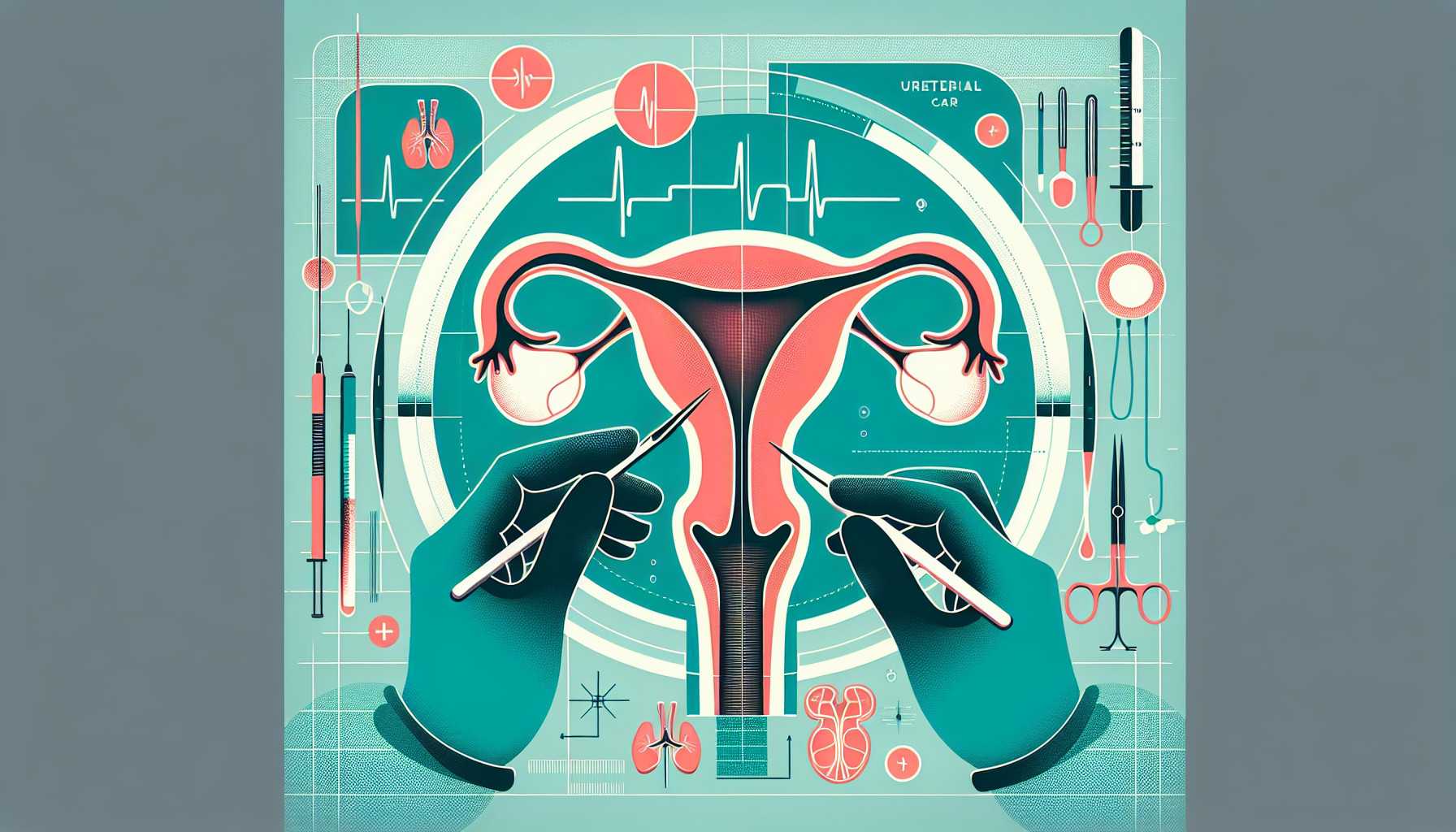Our Summary
This research paper is about a study that looked at the success of a specific surgical procedure in kidney transplant patients who had problems with urine flowing back into the kidney, a condition known as vesicoureteral reflux (VUR). The initial treatment for these patients was using a substance called Deflux™ to help prevent this backflow. However, in some instances, this treatment failed.
The study focused on patients for whom the Deflux™ treatment failed between 2007 and 2020. The researchers then performed a surgical procedure known as ureteral reimplantation (UR) in these patients. This was done either by reattaching the patient’s original ureter to the new kidney or, if that wasn’t possible, by attaching a new ureter.
The researchers wanted to know how well this surgical procedure worked. They measured this by seeing if the patients experienced an acute infection of the kidney transplant, known as graft pyelonephritis, after the surgery.
Out of 1565 kidney transplant operations, 119 had VUR treated with the bulking agent. Of these, 35 had failed Deflux™ treatment and underwent UR - 21 had their original ureter reattached and 14 had a new ureter attached. At the end of the study, the surgery was considered successful in 32 of these 35 patients (91.4%) as they did not experience any graft pyelonephritis.
The study concluded that the surgical procedure is a good option for kidney transplant patients with VUR who don’t respond well to Deflux™ treatment, as it has a high success rate and few serious complications.
FAQs
- What is the primary outcome measured of the ureteral reimplantation procedure after failure of Deflux™ treatment for VUR in renal transplant recipients?
- What are the alternative surgical treatments if the native ureter cannot be used for ureteral reimplantation?
- What is the success rate and complication rate for ureteral reimplantation after failure of Deflux™ treatment in renal transplant recipients?
Doctor’s Tip
One helpful tip a doctor might tell a patient about ureteral reimplantation is to follow post-operative care instructions carefully, including taking prescribed medications, keeping the surgical area clean and dry, and attending follow-up appointments to monitor progress and address any concerns promptly. It is also important to maintain good hydration, avoid heavy lifting or strenuous activity, and follow a healthy diet to support healing.
Suitable For
Patients who are typically recommended ureteral reimplantation are those who have failed endoscopic treatment for symptomatic vesicoureteral reflux (VUR) in renal transplant recipients. In this study, patients who had failure of Deflux™ as first-line treatment of VUR and experienced at least one acute pyelonephritis of the renal graft were recommended ureteral reimplantation. In this study, the preferred surgical treatment was native ureteropyelostomy (NPUS) or ureteroneocystostomy (UNC) if the native ureter could not be used. This surgical treatment was found to be associated with a high success rate and few high-grade complications in renal transplant recipients with VUR.
Timeline
- Before ureteral reimplantation:
- Patient undergoes kidney transplantation
- Develops symptomatic vesicoureteral reflux (VUR)
- Undergoes endoscopic treatment with Deflux™
- Failure of Deflux™ defined by VUR on retrograde cystography and acute pyelonephritis of the renal graft
- Referred for ureteral reimplantation
- After ureteral reimplantation:
- Surgical treatment with either native ureteropyelostomy or ureteroneocystostomy
- Median estimated blood loss, operative time, and length of stay recorded
- Follow-up period of median 7.1 years
- Clinical success rate of 91.4%
- Few high-grade complications reported
- No nephrectomy of native kidney required in the native ureteropyelostomy group.
What to Ask Your Doctor
- What is the reason for recommending ureteral reimplantation in my case?
- What are the potential risks and complications associated with ureteral reimplantation?
- How long is the recovery period after ureteral reimplantation surgery?
- Will I need to make any lifestyle or dietary changes after the procedure?
- How successful is ureteral reimplantation in treating vesicoureteral reflux in renal transplant recipients?
- Are there any alternative treatments to ureteral reimplantation that I should consider?
- How often will I need follow-up appointments after the surgery?
- What symptoms should I watch for that may indicate a complication after the surgery?
- Will I need to take any medications after the surgery to prevent infection or other complications?
- Are there any long-term effects or considerations I should be aware of after undergoing ureteral reimplantation?
Reference
Authors: Morelli M, Boissier R, Tadrist A, Gondran-Tellier B, McManus R, Akiki A, Delaporte V, Karsenty G, Concetti S, Montanari E, Lechevallier E, Baboudjian M. Journal: World J Urol. 2022 Jan;40(1):271-276. doi: 10.1007/s00345-021-03814-2. Epub 2021 Aug 20. PMID: 34415373
